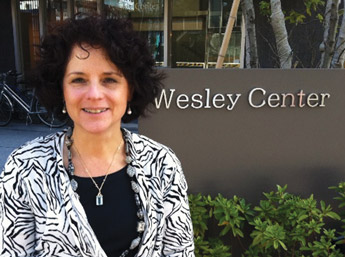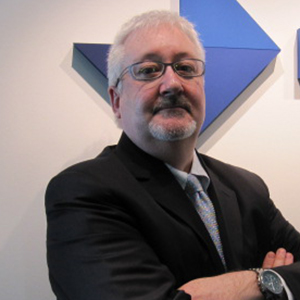Anonymous volunteers help solve simple and serious issues
For almost 40 years, one organisation has been at the front line in Tokyo when it comes to community mental health care: the non-profit Tokyo English Life Line (TELL). But it offers more than just a telephone counselling service, having the two additional core competencies of counselling for children and for families.

Linda Semlitz: Donations, volunteers and sponsors are very welcome
According to TELL Director Jason Chare, most people’s first contact with the organisation is through phone counselling. “We operate from 9am to 11pm seven days a week, 365 days a year, and have 80 active volunteers who, in 2010, handled some 6,811 calls. Each volunteer goes through a demanding training programme and apprenticeship, after which they continue to undergo supervision”.
TELL offers a 60-hour training program over 12 weeks, twice a year. Applicants are carefully vetted before they are admitted into training; this kind of work isn’t for everyone. But for those selected, the impact on their lives can be quite profound. Volunteers maintain strict anonymity—and, outside TELL, never discuss anything they hear or say on the telephone—but some have spoken privately of how the training helped them come to terms with some of their own issues, better preparing them for callers who wish to discuss theirs.
Given the transitory nature of the foreign community, the turnover of volunteers is fairly fast, so there is an on-going need for new candidates to be trained.
The number of calls to TELL increases every year. Calls can be as simple as someone wishing to find information or as complex as a difficult personal relationship, culture shock, depression and anxiety or, in extreme cases, potential suicide.
TELL’s training prepares volunteers for pretty much anything they are likely to meet on the telephone, and high on Chare’s wish list is a title sponsor who could take ownership of the training and so ensure its continuity.
The men and women who staff the phones come from a wide variety of backgrounds and nationalities (all are fluent in English) and they can call on a huge database of resources to make referrals according to the caller’s needs.
“The key thing”, said Chare, “is that our volunteers are trained to listen—really listen—so that they hear what the caller is saying, and at times to intuit what they are not saying, in an effort to help that caller clarify his or her options in any given situation. Sometimes it’s a matter of a few minutes; at other times it’s rather longer and a caller may also wish to call again on another occasion”.
Talking through a problem on the telephone is sometimes not enough and face-to-face counselling is recommended. The TELL Counselling Center is the only comprehensive one of its type in Japan that is staffed by licensed and Western-trained, mental-health professionals and accredited by the Samaritan Institute.
Clinical Director Linda Semlitz MD explained that the centre offers “over 2,400 hours of professional counselling a year on a flexible fee basis. We also provide subsidised care for those individuals and families who qualify”.
Of those counselled at the centre, 75% are non-Japanese and range from diplomats and executives to the unemployed and disabled.
TELL currently has 13 mental-health professionals working face-to-face and, as Semlitz explained, “We can offer counselling in languages other than English: Japanese, obviously, as well as French, Spanish and German. What we deliver meets international standards. To ensure that is the case, we have five psychologists working with our family therapists and child specialists. We believe this is really important, since Japan doesn’t yet have a national programme to vet and license its mental-health workers, and its psychiatrists are generally overburdened”.
Though TELL has been serving the community since 1973, more recent developments have seen the introduction of programmes designed to meet the needs of multicultural families and children where there may be language, behavioural or emotional issues. Other community services include a child protection programme, designed to help schools and other groups understand their responsibility to recognise and report child abuse and to provide counselling. The School Awareness Program offers hands-on workshops concerning such subjects as bullying and stress to teens and preteens, and demonstrates that the Life Line is a safe and confidential place for them to call.
TELL is run by a volunteer board of directors, a handful of salaried professionals and scores of volunteers in the areas of telephone counselling and fundraising. Chare and Semlitz are at pains to stress that, while the community is fundamentally generous, when times are tough it gets harder to raise the 50% of the organisation’s operating budget that is not covered by fees from the counselling services.
Grants are becoming increasingly difficult to secure, so sponsorship is ever more important. Donations are welcome from individuals and corporations, while the various fundraising activities throughout each year (for example, the Walkathon and the Connoisseur’s Auction) provide opportunities for enjoyment at the same time as they support a key resource for the whole community.
That resource is further evident in the online directory of Wiki-tell on the TELL website, a comprehensive listing in English of resources throughout Japan.
www.telljp.com






